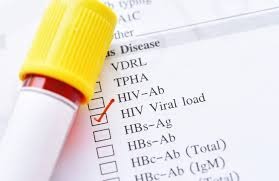A lack of Food Adds to Challenges of HIV and TB in South Sudan

OCHA
In South Sudan, over seven million people are expected to face acute food insecurity or worse between now and July. Among them, patients who are living with tuberculosis (TB) and/or HIV are particularly impacted, since the intensity of treatment can be hard for people to bear on an empty stomach. Some people endure severe pain, while others decide to reduce or even stop taking treatment, putting their lives at risk.
Nobody should have to choose between taking lifesaving medication and living pain free. Yet, this is the situation that more and more people who live with tuberculosis and/or HIV must face in Leer, Unity State. While treatment can involve taking up to eight pills a day and – in the case of people living with HIV – lasts for the rest of their lives, patients have to cope with a lack of food, which can cause severe pain and dizziness. Some people then choose between taking their medication and suffering on a daily basis or stopping it and seeing their health deteriorate.
Standing in front of his house in the hot sun, James holds a cane to support his emaciated body.
“Life is very hard here because we have nothing. I became sick with TB and HIV three months ago, ” says James. “All we find around us are water lily roots, but that’s not enough.” “That’s why I usually reduce my treatment to adapt to the food I eat. If I see that I’m only going to have one meal a day, then maybe I take half my medication,” says James.
Prone to heavy flooding and recurrent insecurity, Leer County in South Sudan is a fairly isolated and difficult place to live. For several years, people have been reluctant to cultivate their land for fear of losing it all. Meanwhile, population displacement from a war-torn Sudan is putting further pressure on food supplies in the area and increasing healthcare needs. Since April 2023, more than 60,000 people – returnees and refugees – have settled in Unity State.
As a result, under nutrition spreads throughout the community, creating a vicious circle. It is a major risk factor for disease, as immune defences are considerably reduced. Food and nutrition support for TB and HIV patients is one of the key ‘treatment enablers’ which has proven to improve patient health condition, influence adherence to treatment, and the overall outcomes.
“Food insecurity is becoming a problem,” says Daniel Mekonen, MSF’s medical team leader in Leer. “We have a cohort of more than 600 patients co-infected with tuberculosis and HIV, and many of them tell us that they can no longer follow the treatment properly because of the lack of food.”
“We used to see eight new patients a month, but recently that figure has doubled,” continues Mekonen. “We see that the number of people who stop taking treatment is increasing. If people are not supported with food, our programme will not succeed. On a national level, MSF is deeply concerned about the ongoing prevalence of HIV and TB in South Sudan.”
MSF started working in Leer, Unity, in 1989, and remains one of the few organisations providing medical care to the people in the area. While malnutrition is rising, there is insufficient food distribution in communities, with no criteria for priority groups. Other organisations and agencies providing food support and assistance should scale up and consider how to specifically target and prioritise groups such as people living with HIV and/or TB.



